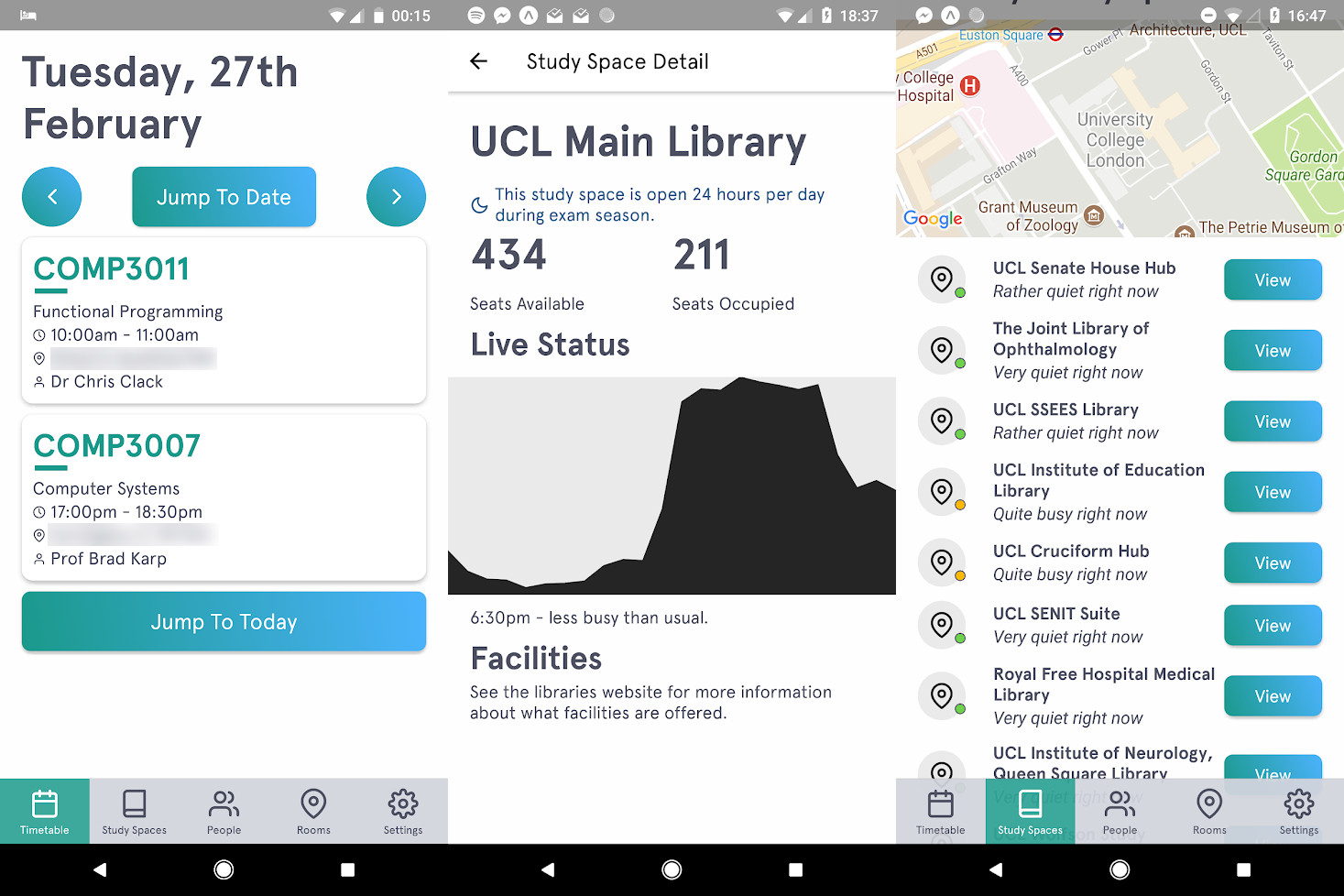
About
UCL Assistant is an open source app being built to help UCL students find the information they need about their lectures, as well as room information around campus. Your timetable is displayed clearly and beautifully on the home page, allowing you to see when each event is and also see where it is, thanks to the map integration. The app also displays live information about the many UCL libraries, using the under-desk IR sensors to show you exactly how busy each library is. This will eventually be extended to show historic and estimated information on how busy the libraries are/will be, as well as heat maps showing you which rooms are the least busy – making it more likely for you to find a seat.
UCL Assistant is being made possible thanks to the amazing work of the UCL API team, who have been invaluable in providing open data, as well as providing technical support and implementing my feedback back into the API to improve it further for everyone.
The app will be available for both iOS and Android, as soon as I’ve fixed up a bunch of bugs and finished a couple of features (and also improved the servers). ETA is April 2018.

Design
The design is a really important aspect of the project. Since it’s aimed at the entire student body, it’s critical that the design is clear, nice to look at, but is also humantistic and actually welcoming. Too many apps tend to either be quite cold and dystopian, or they try and go over the top and build an app which is just frustrating to use (not pointing any fingers at all…).
UCL Assistant isn’t immune to this, so I’m trying to provide as much
opportunity as possible for to get feedback from anyone. App designs are
viewable on Figma,
and this GitHub issue is
open for any design comments/feedback to be made. I’m also welcome to any
feedback provded through any of my social media profiles! ![]()
Server Architecture
I’m very security conscious, so I’m making sure that the app servers store a minimal amount of user data, if any at all. Currently the app does not actually store any data (timetable requests are passed directly to UCL API and returned back to the user); however I recognise that I might have to store a user identifier on a server for a future push notifications service. This would be completely opt-in though.
Authentication is achieved using JSON Web Tokens. They are really useful in that all of the session state is stored inside the token, so our servers can be shut down, replaced, and will still be able to process user requests. This makes scaling much easier (and allows us to run the servers on a service like AWS Lambda if we wanted to).
Shared data (library capacity information, room timetables) are cached on the server with Redis. This limits the amount of strain we put upon the UCL API for certain endpoints, and ensures that we can comfortably handle the majority of the student body using the app concurrently. Hopefully I’ll do a blog post on this at some point in the future.
Demo
Soon![]() .
.